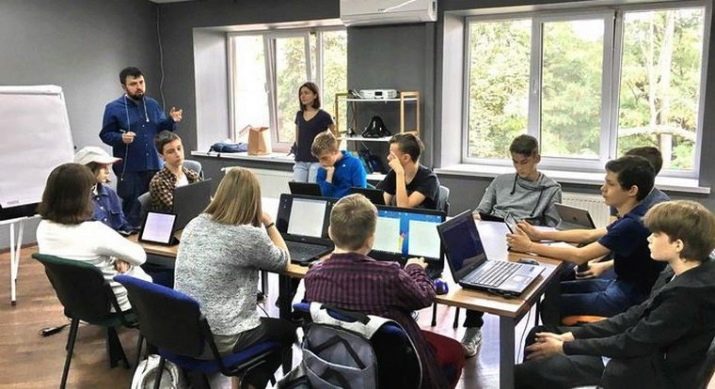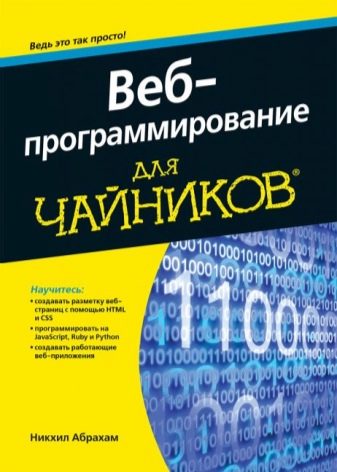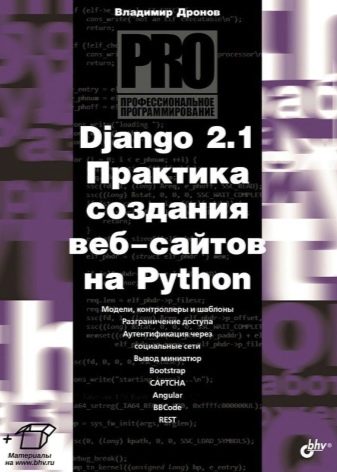How to become a programmer from scratch?

Many people want to connect their lives with programming. This profession is progressive and interesting, it is in demand and well paid. You can learn programming skills from scratch on your own, but learning can take a lot of time and requires some effort.
Choice of language and direction
Becoming a programmer from scratch at home is quite difficult. To begin with, you will have to choose a narrower field of specialty, because a programmer can make applications, websites and much more. Then you need to decide on the programming language. It is not easy, you will have to delve into the field and spend a lot of time studying in detail.
The learning process itself can be completely independent and take place with the help of available literature and software, services. Some find themselves mentors or go to specialized educational institutions to obtain a certificate or diploma. All options can be equally effective.
Let's consider the main directions and programming languages.
- Web development... Languages like Python, Ruby, JavaScript and PHP are used here.
- Development for mobile devices. For gadgets running IOS, you need to know Objective-C, and if you need to write for Android, then Java is used. Swift is also used in this direction.
- Development of programs and games for the PC. You should know the following languages: C ++, C #, C.
- Machine learning and AI... Python, R, Scala are used to work in this direction.

Where to begin?
Learning to program at home is difficult, but this choice will definitely pay off over time. There are many tutorials and books in the public domain for mastering new things.It should be understood that there are many programming languages, and each is designed for a specific range of tasks. There is other information that will have to be studied.
To make it easier, you can start learning programming from courses. Thus, a person with practical experience will be able to help determine the vector of learning. Moreover, it is a great way to save time. Lessons and assignments from professionals will allow you to quickly navigate a large amount of information.
If you still want to master the codes yourself, then it is recommended to work with the official documentation in the original language.
Benefits of self-mastering the profession:
- a large amount of practice, which will definitely be needed in the course of learning languages and libraries;
- the ability to quickly start earning by applying new skills;
- a more responsible approach and attitude;
- minimal financial expenses or their complete absence.
It should be noted that becoming a professional in a short period of time will not work. There is no one to ask for advice, therefore you will have to face many difficulties in learning... Finding information and analyzing it takes more time than the training itself. But in any case, it is worth deciding on the type of activity at the very beginning.

Newbies often start by mastering difficult and prestigious languages. At first, interest is strong, but a heavy load leads to its loss.
When choosing the first language, you should focus on the following criteria:
- the possibility of future employment;
- low level of entry;
- direction of activity.
The level of entry presupposes the complexity of the language that will not force you to refuse to study it.
The most accessible are PHP, Python, Ruby.
At the same time, it is important to clearly understand whether a programming language is suitable for solving those problems that arouse interest. So, to write sites and games, you need to get different knowledge and skills.

Understand HTML and CSS
At the very beginning of the path, it is worth getting basic skills. HTML is a hypertext markup language. It creates a web page. Learning is quite simple, because the language consists of understandable tags. CSS allows you to style a previously created element so that it is visually beautiful.
It is easy to find suitable literature in the public domain, but in the original it is in English.
Many experts recommend not to resort to translations, but to study the programs in the form in which they were originally.
Mastering HTML and CSS makes it possible to work as a layout designer. If you wish, it is worth stopping at this stage, giving it a little more time.

Get to know jQuery
The JavaScript library has a simple and straightforward syntax. There is quite a lot of literature to help you learn. The jQuery feature set has been around for a long time and allows you to improve the page after using HTML and CSS. With this library you can:
- remove differences in document displays that exist between browsers;
- abstract the interface;
- fix most of the problems that can occur when viewing the page.
If it becomes interesting while studying, then you can continue to master JavaScript, and then there will be enough skills to work as a front-end programmer.
This information is needed by anyone who has decided to head into web development. In other cases, it is enough to simply familiarize yourself with the library, understand the principle of operation and move on.

Master a server-side programming language
Here the future specialist will have to make a choice. Server-side languages are needed to describe possible scenarios for user interaction with an application or site. Before training, it is worthwhile to carefully consider the strategy. There are quite a few languages of this kind: PHP, Ruby, Java, C, Python and others. Usually the project uses the one with more specialists.
The most common server-side programming language is PHP. The cost of working with it is low, because the threshold for entering a niche will be low.
In the case of Java, Ruby, Python, things are much better. It is not necessary to know everything, you need to choose one thing and master it perfectly. At the same time, Python is considered the easiest to learn.


Basic knowledge
A programmer of any level and direction should know mathematics. Moreover, the key role is played by the understanding of logic, and not working with numbers. It is believed that this is especially important for tedious tasks.
Everyone who decides to start training must know English at the level to understand the official documentation.
Most educational literature is outdated by the time it is translated into Russian. Moreover, programming is popular in any country, and knowledge of English will expand the horizons of a novice specialist.
The programmer definitely needs to know:
- HTML markup language and CSS design;
- JavaScript;
- Android, iOS, Windows systems for PC and its mobile version;
- algorithms.

Where to get experience?
It is impossible to master the profession with the help of independent tasks alone, you need to deal with real projects. Gradually, knowledge will allow you to make good money. You can write your first code when you create your own project, site, or program. This is done when studying programming courses. However, this is not the only way.
Many aspiring professionals start freelancing. Remote work is quite convenient, because you can simultaneously get the missing knowledge.
To get started, you can search for orders on freelance exchanges. You will have to deal with small and inexpensive tasks in order to earn a certain rating and trust from employers.
It is more interesting and more promising to work on English-language exchanges. The pay is higher there, and the tasks are more varied. This experience comes in handy for building a portfolio. After working on the Internet, you can find a company and build a career in it. Many programmers continue to work remotely for their own pleasure and a sense of independence.
A rather interesting option would be to search for a project on which the same novice specialists are working. You can ask for help from familiar programmers who can share a certain range of tasks. Much also depends on the direction that was initially chosen for training. So, when writing programs, it's much better to make your own project.

Recommendations
Professionals assure that the first language that a beginner begins to master is of great importance. It is this knowledge that will become the basis for all subsequent ones. The first language allows you to understand the logic of writing code, so it is better if it is simple and understandable. You should also start putting knowledge into practice as early as possible.
The easiest language to learn is Python. Uncomplicated syntax does not cause difficulties in understanding logic, and knowledge of this language saves time. Moreover, once mastered, it is already possible to complete paid tasks. The existing library bases will make working with Python as easy as possible.
The next contender to learn is Java. The language is popular and is used to solve many problems. True, it will be more difficult to master it than the previous one. PHP is also an interesting option. The peculiarity of the language lies in the fact that there are many options for solving one problem.
Don't start with C, C ++, and C #. They open up perspectives, but they are highly complex.
All experts agree that this is the worst start to immersion in the profession. Wherein it is important that the first language allows solving problems in the chosen field of activity.









